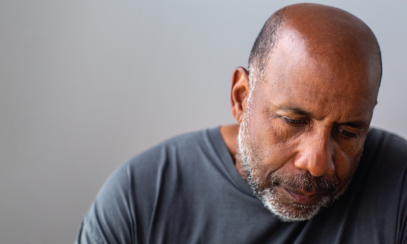
How could I have been so wrong in what God was calling me to do?
I had thought that I was doing God’s will; I had prayed and every indication was that this was the direction that God wanted me to pursue. But after some time, every roadblock was put in front of me, and I had to go elsewhere. How could I have been so wrong about what God was calling me to?
I had thought that I was doing God’s will; I had prayed and every indication was that this was the direction that God wanted me to pursue. But after some time, every roadblock was put in front of me, and I had to go elsewhere. How could I have been so wrong about what God was calling me to?
This is such a great question. So many people have been in your shoes and know the frustration of believing that God had called them to do one thing only to realize that the door they thought God wanted them to go through was shut. I hear you. I also hear your asking where you went wrong.
I see this most often with people in relationships. There are times when two people will have been very thoughtful and prayerful about discerning whether or not God was calling them to be in a dating relationship (or even engagement) with each other. They could have sought out wise counsel and really submitted their plans to whatever God wanted. In that, it might have become very clear to them that God was inviting them to enter into this relationship. (I have also seen this with men entering seminary and women entering discernment with a religious community.) Then, sometimes all of a sudden, the other person breaks up with them. Or the seminary instructs them that they are not called to continue formation for the priesthood. Not only can this be incredibly painful, but it can also send a person into a kind of tailspin when it comes to their ability to hear the voice of God. They begin to doubt whether they can ever wisely and accurately discern God’s will again.
There are a few things to keep in mind when discerning God’s will. The first is that God’s will is not always obvious or even specific. We know that God’s will is always that we become saints. God constantly wills that we say yes to him and surrender our lives to him. But he also gives us quite a bit of leeway when it comes to our choices. While there are some things that God has always prohibited (like murder or adultery – you don’t have to discern whether he wills you to kill an innocent person or break marriage vows), and there are some things that God has always commanded (like going to Mass on Sundays or loving our neighbor), there seem to be quite a few choices that God is quite OK with us going this way or that.
A general rule of thumb could be: If God hasn’t revealed his will on a topic through Scripture or the Church’s teaching, and he hasn’t made it absolutely clear to you that he wills a particular choice for you, then he is giving you the freedom to choose for yourself.
Many of us often say that we want this. Of course, when it comes down to it, many of us want to do God’s will so that we have some imagined guarantee that things will turn out well, or because we want someone to blame if things turn out poorly. It could be worth our time to reflect on why it is that we want to know God’s will. Is it because we desire to submit our entire lives to him or because we want someone else to make a decision for us? In creating us with free will, God is also entrusting us with the responsibility of exercising that free will. And this means that sometimes we will not choose the best for ourselves. But it was our choice, not God’s.
Second, we can sometimes discern wrong. God is incredibly involved in our lives; He does not want to remain some distant “force” somewhere outside of the universe. He is a Father who loves us and who draws close to us. He wants the best for us and does reveal himself and his will in various ways. And there are times when we get him wrong. Just look at the history of Christianity to see how often people sincerely get God entirely wrong. From various heresies that have arisen over time, to the Reformation that ended up fracturing Christ’s Body into tens of thousands of splinters … well-meaning Christians can get it wrong. I’m sure that Martin Luther or John Calvin were praying and thinking and discerning when they broke away from the Church … and they were still wrong.
Because of this, we can’t rule out the possibility that we can discern incorrectly.
Third, one of the criterion for deciding whether or not we discerned wrongly cannot be that it has led us to a place of pain or failure. I will talk to people who say that their current situation must have meant that they missed God’s will, because their plans didn’t work out or because they encountered a tragic amount of pain: The person who tried a new job only to fail or the person who took a moral stand at work and ended up paying a price for their courage.
Doing the right thing does not mean that everything will work out the way we had hoped. For proof of this, we only have to look to Jesus. He did the Father’s will perfectly, and yet he was rejected, betrayed, brutally tortured and killed. God does not promise that things will be easy for us if we do his will. Instead, he warns us that we will be rejected and hated.
Lastly, you might have discerned exactly what God was calling you to do. What you might not have discerned was how long he was calling you to do it. There are times when I will offer counsel to someone who was so absolutely sure that God had called them down a certain road only to discover that he was then calling them to turn down another road that was very different than the original road. They can be tempted to see this as failure. I do not. I see this as a person who is continually allowing themselves to be led by God without falling into the trap of thinking, “I’ve figured out God’s will for my life … discernment is for someone else.” If God got a person to start moving down one road and calls them to “turn,” that means that the first discernment was accurate! It got them to the next road that God was calling them toward.
We often want to know the entire route, but God most often gives us just enough light for one step. We often want to know the whole story, but God wants to write the story with us, one choice at a time.
Father Michael Schmitz is director of youth and young adult ministry for the Diocese of Duluth and chaplain of the Newman Center at the University of Minnesota Duluth. Ask Father Mike is published by The Northern Cross.



